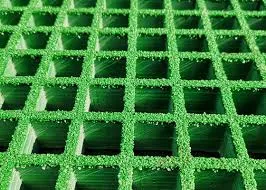
-
 Afrikaans
Afrikaans -
 Albanian
Albanian -
 Amharic
Amharic -
 Arabic
Arabic -
 Armenian
Armenian -
 Azerbaijani
Azerbaijani -
 Basque
Basque -
 Belarusian
Belarusian -
 Bengali
Bengali -
 Bosnian
Bosnian -
 Bulgarian
Bulgarian -
 Catalan
Catalan -
 Cebuano
Cebuano -
 China
China -
 China (Taiwan)
China (Taiwan) -
 Corsican
Corsican -
 Croatian
Croatian -
 Czech
Czech -
 Danish
Danish -
 Dutch
Dutch -
 English
English -
 Esperanto
Esperanto -
 Estonian
Estonian -
 Finnish
Finnish -
 French
French -
 Frisian
Frisian -
 Galician
Galician -
 Georgian
Georgian -
 German
German -
 Greek
Greek -
 Gujarati
Gujarati -
 Haitian Creole
Haitian Creole -
 hausa
hausa -
 hawaiian
hawaiian -
 Hebrew
Hebrew -
 Hindi
Hindi -
 Miao
Miao -
 Hungarian
Hungarian -
 Icelandic
Icelandic -
 igbo
igbo -
 Indonesian
Indonesian -
 irish
irish -
 Italian
Italian -
 Japanese
Japanese -
 Javanese
Javanese -
 Kannada
Kannada -
 kazakh
kazakh -
 Khmer
Khmer -
 Rwandese
Rwandese -
 Korean
Korean -
 Kurdish
Kurdish -
 Kyrgyz
Kyrgyz -
 Lao
Lao -
 Latin
Latin -
 Latvian
Latvian -
 Lithuanian
Lithuanian -
 Luxembourgish
Luxembourgish -
 Macedonian
Macedonian -
 Malgashi
Malgashi -
 Malay
Malay -
 Malayalam
Malayalam -
 Maltese
Maltese -
 Maori
Maori -
 Marathi
Marathi -
 Mongolian
Mongolian -
 Myanmar
Myanmar -
 Nepali
Nepali -
 Norwegian
Norwegian -
 Norwegian
Norwegian -
 Occitan
Occitan -
 Pashto
Pashto -
 Persian
Persian -
 Polish
Polish -
 Portuguese
Portuguese -
 Punjabi
Punjabi -
 Romanian
Romanian -
 Russian
Russian -
 Samoan
Samoan -
 Scottish Gaelic
Scottish Gaelic -
 Serbian
Serbian -
 Sesotho
Sesotho -
 Shona
Shona -
 Sindhi
Sindhi -
 Sinhala
Sinhala -
 Slovak
Slovak -
 Slovenian
Slovenian -
 Somali
Somali -
 Spanish
Spanish -
 Sundanese
Sundanese -
 Swahili
Swahili -
 Swedish
Swedish -
 Tagalog
Tagalog -
 Tajik
Tajik -
 Tamil
Tamil -
 Tatar
Tatar -
 Telugu
Telugu -
 Thai
Thai -
 Turkish
Turkish -
 Turkmen
Turkmen -
 Ukrainian
Ukrainian -
 Urdu
Urdu -
 Uighur
Uighur -
 Uzbek
Uzbek -
 Vietnamese
Vietnamese -
 Welsh
Welsh -
 Bantu
Bantu -
 Yiddish
Yiddish -
 Yoruba
Yoruba -
 Zulu
Zulu
Durable and Corrosion-Resistant Fiberglass Solutions for Various Industrial Applications and Environments
Corrosion Resistant Fiberglass A Game Changer in Material Science
Corrosion is one of the most significant issues faced by industries worldwide, leading to substantial economic losses and safety hazards. Traditional materials, such as metals, are susceptible to various forms of corrosion, especially in harsh environments. To combat this problem, the innovation of corrosion-resistant fiberglass has emerged as a game-changing solution, offering durability, versatility, and environmental resistance.
Fiberglass, or glass-reinforced plastic (GRP), is a composite material made of a polymer matrix reinforced with glass fibers. Its inherent properties provide a high strength-to-weight ratio, making it an excellent alternative to metals. However, what sets corrosion-resistant fiberglass apart is its unique formulation that enhances its ability to withstand chemical and environmental degradation.
Corrosion Resistant Fiberglass A Game Changer in Material Science
Moreover, fiberglass is lightweight compared to steel or aluminum, leading to reduced transportation costs and easier installation. This characteristic is especially beneficial in applications where weight is a critical factor, such as in aerospace or construction. With the rising trend toward more sustainable practices, the lightweight nature of fiberglass contributes to energy efficiency by reducing fuel consumption during transportation.
corrosion resistant fiberglass

The flexibility of fiberglass also allows for intricate designs and custom fabrication. Unlike traditional materials that can be challenging to mold into complex shapes, fiberglass can be easily manufactured into bespoke parts, ensuring that a wide range of applications can be met seamlessly. This design versatility makes corrosion-resistant fiberglass suitable for various applications, from pipelines and storage tanks to marine vessels and electrical enclosures.
In addition to its functional benefits, corrosion-resistant fiberglass also addresses environmental concerns. As industries become increasingly aware of their ecological footprints, the need for materials that minimize environmental impact is paramount. Fiberglass is non-toxic and can be produced with recyclable or renewable materials. Furthermore, the long lifespan of fiberglass components means they do not need to be replaced as frequently, reducing overall waste.
The applications of corrosion-resistant fiberglass are vast and diverse. In the construction industry, this material is used for roofing, cladding, and decorative elements, offering aesthetics without sacrificing durability. The energy sector employs fiberglass in wind turbine blades and solar panel supports, where resistance to degradation prolongs operational efficiency. Even in the marine industry, boats and offshore platforms benefit from the corrosion resistance and lightweight properties of fiberglass, safeguarding them against harsh marine environments.
As technology continues to advance, the future of corrosion-resistant fiberglass looks promising. Innovations in composite materials and manufacturing techniques will likely enhance its performance and application range even further. This evolution presents an opportunity for industries to adopt sustainable and resilient materials that address the challenges of corrosion while supporting environmental goals.
In conclusion, corrosion-resistant fiberglass represents a significant advancement in material science, offering a robust, versatile, and eco-friendly solution to one of the industry's foremost challenges. As companies increasingly seek alternatives to traditional materials, the strategic incorporation of corrosion-resistant fiberglass can yield substantial benefits, paving the way for a more resilient and sustainable future.
Latest news
-
High-Quality Fiberglass Car Bodies Durable GRP Car & Boat Body SolutionsNewsJul.08,2025
-
High-Quality Fiberglass Dual Lamination Product Manufacturer Durable FRP & GRP Dual Lamination SolutionsNewsJul.08,2025
-
Rectangular Tank with Dimensions for GRP Calculation Custom Fiberglass GRP Rectangular TanksNewsJul.07,2025
-
High-Quality Fiberglass Weir Custom FRP Weir & Fiberglass Tanks ManufacturerNewsJul.07,2025
-
CPVC FRP Pipe A Reliable Choice for Industrial Applications High Strength & Corrosion ResistanceNewsJul.07,2025
-
Fiberglass Scrubber for Effective Cleaning and Stain Removal – Superior Performance in Various ApplicationsNewsJul.06,2025









